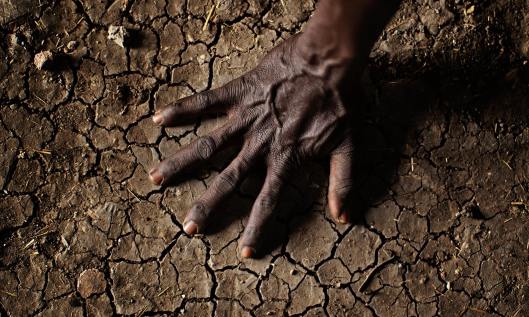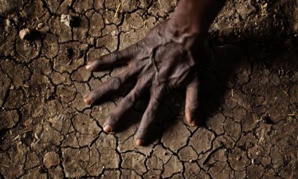The Montpellier Panel is a group made up of eminent experts in the field of ecology, trade and agriculture from Europe and Africa. As per a report commissioned by them, almost 65% of Africa’s arable land is damaged and cannot support the production of sustainable food.
The report titled “No Ordinary Matter: conserving, restoring and enhancing Africa’s soil ” says that 65% of Africa’s agricultural land suffers from three primary threats which are land degradation, growing population and poor yield.
"Political stability, environmental quality, hunger, and poverty all have the same root. In the long run, the solution to each is restoring the most basic of all resources, the soil," says Rattan Lal.
As per the Montpellier Panel, it is critical that donors and African governments invest in soil and land management. Further, they have to create an ambiance and a framework that provides incentives on secure land rights so as to ensure the proper care and management of agricultural land. Further, African Governments should also provide financial support for investment on sustainable land management.
Coincidentally the report has been tabled in 2015, the same year in which the U.N has declared it to be the international Year of Soils. Jose Graziano da Silva the director general of the Food and Agriculture Organisation (FAO), says this is very important decision by the U.N since it “[paves] the road towards a real sustainable development for all and by all.” He further goes on to add that it is thanks to human activities that a third of our planet’s soil is degraded and the tragedy is that we depend on this very soil for our food production.
As per the Food and Agriculture Organisation, it can take a 1000 years to form just 1 centimetre of soil and without better approaches and better soil management techniques “the amount of arable and productive land per person in 2050 will be a fourth of the level it was in 1960”.
The problem is that before even receiving any kind of training for soil management and testing the soil for deficiencies, farmers start dumping fertilisers onto it. It is only now that farmers are being given soil testing kits and are being trained to diagnose their soil with it or send it to laboratories for testing.
As per the report submitted by the Montpellier Panel, land degradation affects more than 180 million people in the Sub-Saharan desert and the economic cost to restore the damaged soil so as to prevent lower crop yields comes to about $68 billion. Professor Sir Gordon Conway from the Montpellier Panel says that, “The burdens caused by Africa’s damaged soils are disproportionately carried by the continent’s resource-poor farmers.”
A new report published by a U.S based researcher has cited global warming as a reason for soil degradation. The report titled “Climate Change and Security in Africa” says that it is likely that in Africa, the average temperatures will be higher than that of the rest of the world and it will also see less annual rainfall, although eastern Africa could potentially be an exception.
The report states:
“Less rain will have serious implications for sub-Saharan agriculture, 75 percent of which is rain-fed… Average predicated production losses by 2050 for African crops are: maize 22 percent, sorghum 17 percent, millet 17 percent, groundnut 18 percent, and cassava 8 percent.”
“Hence, in the absence of major interventions in capacity enhancements and adaption measures, warming by as little as 1.5C threatens food production in Africa significantly.”
In an article titled “Our Good Earth.”, agro-ecologist Jerry Glover said “By 1991, an area bigger than the United States and Canada combined was lost to soil erosion—and it shows no signs of stopping. Native forests and vegetation are being cleared and converted to agricultural land at a rate greater than any other period in history. We still continue to harvest more nutrients than we replace in soil”
When countries drill for oil, they tend to worry about its deletion rate. However, it is strange that they do not apply the same logic to the soil. For some reason, nobody seems to think that we will run out of soil, which clearly we will unless we start practicing sustainable soil management.
References:
http://www.ipsnews.net/2015/01/more-than-half-of-africas-arable-land-too-damaged-for-food-production/
The report titled “No Ordinary Matter: conserving, restoring and enhancing Africa’s soil ” says that 65% of Africa’s agricultural land suffers from three primary threats which are land degradation, growing population and poor yield.
"Political stability, environmental quality, hunger, and poverty all have the same root. In the long run, the solution to each is restoring the most basic of all resources, the soil," says Rattan Lal.
As per the Montpellier Panel, it is critical that donors and African governments invest in soil and land management. Further, they have to create an ambiance and a framework that provides incentives on secure land rights so as to ensure the proper care and management of agricultural land. Further, African Governments should also provide financial support for investment on sustainable land management.
Coincidentally the report has been tabled in 2015, the same year in which the U.N has declared it to be the international Year of Soils. Jose Graziano da Silva the director general of the Food and Agriculture Organisation (FAO), says this is very important decision by the U.N since it “[paves] the road towards a real sustainable development for all and by all.” He further goes on to add that it is thanks to human activities that a third of our planet’s soil is degraded and the tragedy is that we depend on this very soil for our food production.
As per the Food and Agriculture Organisation, it can take a 1000 years to form just 1 centimetre of soil and without better approaches and better soil management techniques “the amount of arable and productive land per person in 2050 will be a fourth of the level it was in 1960”.
The problem is that before even receiving any kind of training for soil management and testing the soil for deficiencies, farmers start dumping fertilisers onto it. It is only now that farmers are being given soil testing kits and are being trained to diagnose their soil with it or send it to laboratories for testing.
As per the report submitted by the Montpellier Panel, land degradation affects more than 180 million people in the Sub-Saharan desert and the economic cost to restore the damaged soil so as to prevent lower crop yields comes to about $68 billion. Professor Sir Gordon Conway from the Montpellier Panel says that, “The burdens caused by Africa’s damaged soils are disproportionately carried by the continent’s resource-poor farmers.”
A new report published by a U.S based researcher has cited global warming as a reason for soil degradation. The report titled “Climate Change and Security in Africa” says that it is likely that in Africa, the average temperatures will be higher than that of the rest of the world and it will also see less annual rainfall, although eastern Africa could potentially be an exception.
The report states:
“Less rain will have serious implications for sub-Saharan agriculture, 75 percent of which is rain-fed… Average predicated production losses by 2050 for African crops are: maize 22 percent, sorghum 17 percent, millet 17 percent, groundnut 18 percent, and cassava 8 percent.”
“Hence, in the absence of major interventions in capacity enhancements and adaption measures, warming by as little as 1.5C threatens food production in Africa significantly.”
In an article titled “Our Good Earth.”, agro-ecologist Jerry Glover said “By 1991, an area bigger than the United States and Canada combined was lost to soil erosion—and it shows no signs of stopping. Native forests and vegetation are being cleared and converted to agricultural land at a rate greater than any other period in history. We still continue to harvest more nutrients than we replace in soil”
When countries drill for oil, they tend to worry about its deletion rate. However, it is strange that they do not apply the same logic to the soil. For some reason, nobody seems to think that we will run out of soil, which clearly we will unless we start practicing sustainable soil management.
References:
http://www.ipsnews.net/2015/01/more-than-half-of-africas-arable-land-too-damaged-for-food-production/






